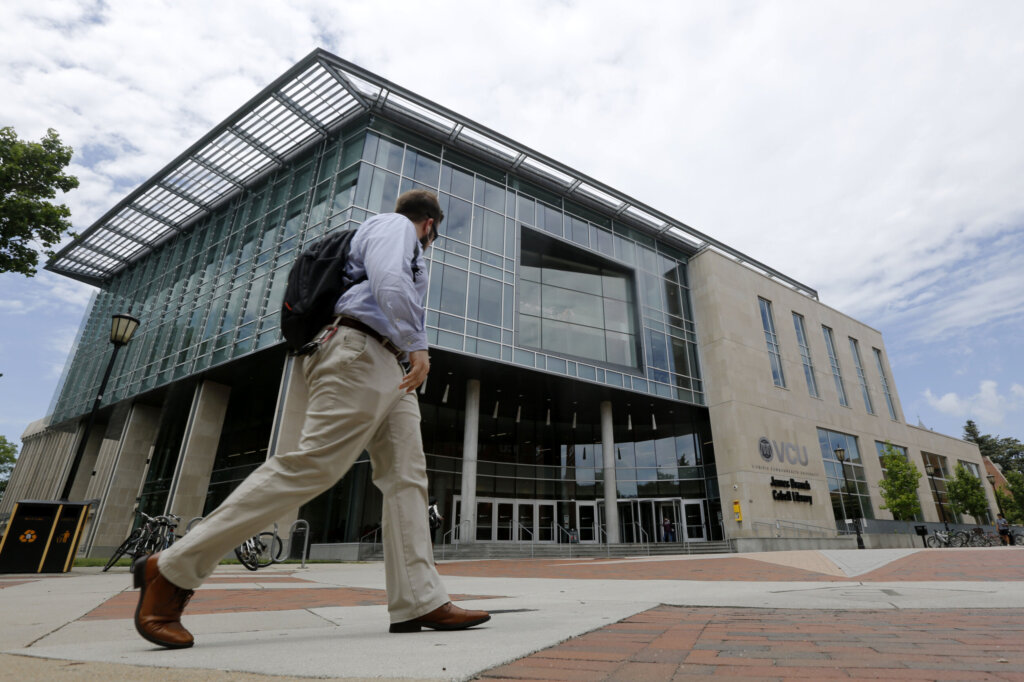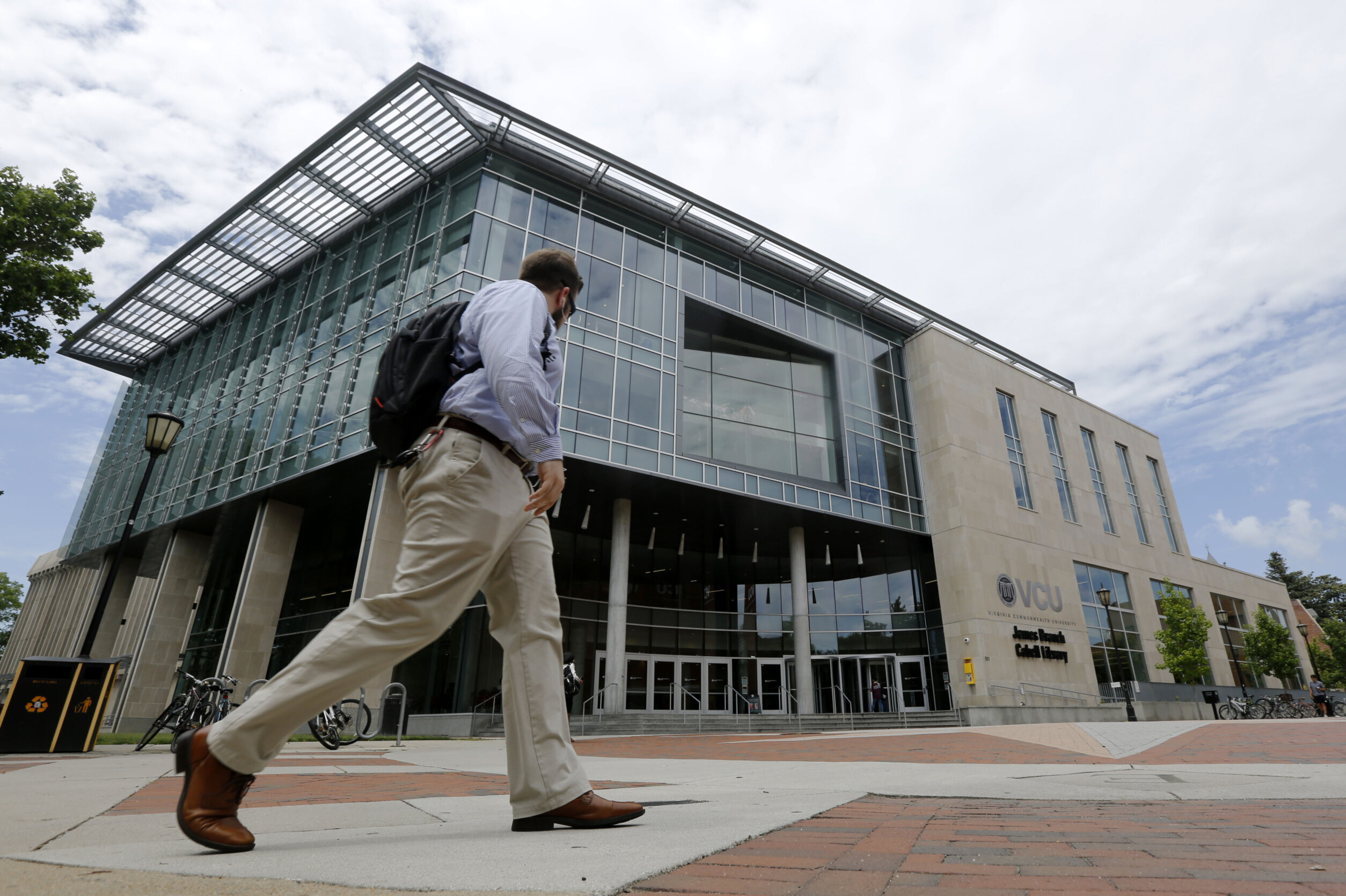
Students in Virginia who rely on Pell Grants to help pay for college may soon face higher costs under a sweeping set of federal education reforms being considered by the U.S. Senate.
This article was reprinted with permission from Virginia Mercury.
Students in Virginia who rely on Pell Grants to help pay for college may soon face higher costs under a sweeping set of federal education reforms being considered by the U.S. Senate.
The Pell Grant program is the primary source of federal financial aid for low-income students, supporting degree completion at both public and private institutions. During the 2023-24 school year, Virginia’s public and private universities reported to the state that they had 144,116 Pell Grant recipients.
“It has been one of the great successes in helping lower-income families and students pursue a degree,” said Sabena Moretz, director of government relations and member services for the Council of Independent Colleges in Virginia (CICV).
According to CICV, 82% of students at Virginia’s private colleges receive financial aid, with an average award of $25,000. The association represents 28 accredited, nonprofit, independent colleges and universities around the Commonwealth.
However, the proposed changes come as no surprise.
Back in 2016, President Donald Trump took aggressive steps to roll back Obama-era higher education measures, including a proposal to rescind the Gainful Employment Regulations that aimed to protect students from predatory programs.
In the latest effort, the Trump administration is backing a new legislative push dubbed the “One Big Beautiful bill,” a package of higher education reforms that includes changes to federal student loan programs, repayment rules, and institutional accountability. Supporters say the reforms would expand the Pell Grant to workforce training programs and help break the student debt cycle.
Meanwhile, Democrats have opposed the bill, arguing that it would make college less affordable, eliminate borrower safeguards and protect predatory colleges.
One proposal in the bill would prohibit students from receiving a Pell Grant if their total grant aid from federal, state, institutional and private sources meets or exceeds their total cost of attendance — the estimated expenses for one year of college. These costs typically include tuition, room and board, and textbooks.
The changes are set to take effect on July 1, 2026.
A spokesperson for the State Council of Higher Education for Virginia (SCHEV), the coordinating body for the state’s colleges and universities, declined to comment on the proposal. However, the office stated that it’s uncommon for financial aid to exceed a student’s costs of attendance.
“Having total aid exceed cost of attendance would be a rare occurrence, though it does happen,” said Lee Andes, SCHEV’s director of finance policy and innovation. “Since most financial aid rules (including the state) would require a reduction in aid under the scenario described, the student would receive no harm under the new federal policy compared to current policy.”
Andes said that under both policies, a student would be limited to receiving no more aid than the total cost of attendance.
“Traditionally, Pell has been treated as a first-in grant; this policy makes it somewhat ambiguous how it would be treated and which programs are reduced first. I would anticipate federal guidance to follow any change in the law,” Andes said.
CICV said it is monitoring the discussion but remains concerned about how the proposal could impact students and institutions. Students at CICV member institutions received $214 million in Pell funds during the 2023-24 school year. Moretz said if students find the application process difficult, they may choose to not enroll.
In addition, if students no longer receive such grants, they may be unable to attend those institutions at all.
“The more complicated we make financial aid, the less likely students are to be able to follow along and to be successful at getting through the application process, and that does not serve students well,” Moretz said.
Virginia is not alone in its concerns about how the bill could impact students and colleges.
Ted Mitchell, president of the American Council on Education, wrote in a May 21 letter to House representatives that the council is concerned about changes to the Pell Grant eligibility, the availability of federal student loans for graduate students, new and increased taxes imposed on institutions of higher education, and significant cuts to other programs supporting millions of postsecondary students nationwide.
“If enacted, this bill will put college out of reach for hundreds of thousands of students, significantly increase the costs for remaining students, and weaken America’s ability to compete with our global rivals by undermining the academic and research system that has driven our economy for decades,” Mitchell wrote.
The Senate is also considering eliminating the Grad PLUS loan program, which provides funding for graduate students, potentially forcing them to seek private loans. Additionally, lawmakers are weighing a new endowment tax targeting wealthy private institutions.
The endowment tax would raise the current 1.4% on private university endowments to a tiered rate based on endowment per U.S. student, excluding non-U. S. citizens from the calculation.
Democrats and other critics argue that the tax could also reduce funding for financial aid, research, and other essential operations.
The Senate is currently reviewing the bill, which passed the House last month.
(Except for the headline, this story has not been edited by PostX News and is published from a syndicated feed.)

